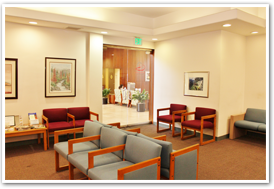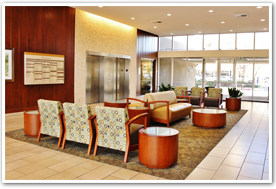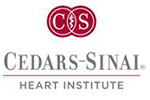Nuclear cardiac imaging uses small, safe doses of a tracer substance that is injected into the body and can be detected by a special camera called a “gamma camera”. The patient then lies down on an imaging table and images of the heart are obtained while the patient is at rest.
Next, the heart muscle is “stressed” by having the patient exercise on a treadmill and images are again obtained. For patients who are unable to exercise or those with certain medical conditions or ECG findings, a short-acting medication is used instead of exercise to stress the heart muscle.
We are conveniently located in West Hills, CA


The rest and stress images are then processed, compared, and interpreted by your cardiologist to obtain information about the status of blood flow and motion of different parts of the heart muscle. This will help determine if there are blockages in the arteries around the heart and how well the heart muscle contracts.
The procedure involves placement of an “IV” in your arm for administration of the tracer. Other sources of possible discomfort may include brief shortness of breath or chest discomfort in the case of stress testing using medications. However, this discomfort lasts a very short time and is generally completely resolved within 5 minutes. The entire nuclear stress test usually takes about 4 hours.
For more information please see:
https://www.cardiosmart.org/News-and-Events/2013/01/Video-Stress-Nuclear-Study







